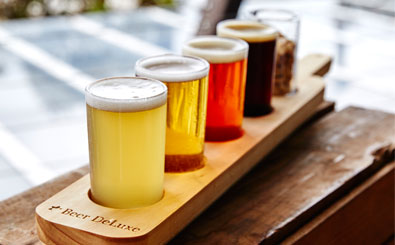
As of Monday 5 February, Australia’s beer industry is facing a detrimental increase in tax once again, with Australia’s beer tax currently the third highest in the world.
Following the onset of the bi-annual CPI increase, the law which indexes the excise duty rates for alcohol based on the upward movement of the CPI, both beer and spirits industries have been impacted by tax hikes.
For beer with alcohol exceeding three per cent in an individual container less than eight litres, tax has now increased from $59.06 to $60.12 per litre of pure alcohol, and pub beer tax now sits at $42.37 for beers over 3.5 per cent.
After the announcement of the most recent tax increase, John Preston, CEO of the Brewers Association of Australia said: “This is more bad news for any Australian who enjoys having a beer with their friends in the pub or at home.
“This twice-yearly increase is hurting hard-working Australians, with our beer tax now the third highest in the world behind Norway and Finland. This means that we’re seeing $15 a pint in some pubs and if you go into a bottle shop, $20 of that slab goes straight to the Federal Government. It’s just more bad news.”
Speaking to Beer & Brewer, Preston said that the twice-yearly tax increase over the last 30 years has had a damaging effect on the industry.
“It’s the cumulative increase that has now put us in this position. What we’ve seen with other countries like the US, the UK, and most recently Japan, is a similar process where they have indexed their beer tax, but in recent years they have taken a look and paused it. They’ve said, enough is enough.
“We brew a lot of our own beer here, and we produce a lot of the raw ingredients in Australia. It doesn’t make sense for us to keep increasing the tax twice a year, and it’s now having a significant impact on price,” he added.
“I think we’re well past the stage where there was an argument that we needed these tax increases to encourage people to drink responsibly. People’s consumption of alcohol has really dropped quite significantly over the last few decades, beer particularly.
“It’s damaging to venues, to brewers, to the farmers that supply barley and hops, to the whole industry.”
While the brewing industry has continued to put pressure on the Government to freeze the tax, this continual cost of living burden on the Australian public has been ignored by Anthony Albanese and indeed by mainstream media. In 17 press conferences and interviews last week the Prime Minister was asked about this issue only once.
3AW’s Jacqui Felgate asked the Prime Minister about beer excise, and he said: “Last time I had schooners, I bought a few, and it added up to almost $30 for just three beers. So, it is expensive, the cost of living.
“That’s one of the reasons why we’re not just sitting back and wringing our hands and saying, oh, well, this is difficult. We have so many measures – cheaper childcare has reduced the cost of childcare by 11 per cent.”
When pressed on whether the Labor Party would look at pausing excise, the Prime Minister replied: “We are not looking at that at the moment, but obviously in the lead up to budgets, you have submissions and I’m sure that there’ll be submissions along a whole range of ways. One of the things that we have to do though, is look at ways where we provide cost of living support, whilst putting downward pressure on inflation.”
Post-pandemic repayments
Further to continuous tax hikes at the disadvantage of brewers, Kylie Lethbridge, CEO of Independent Brewers Association (IBA), told Beer & Brewer about the harsh circumstances experienced by many as a result of deferred liquor excise payments incurred during the pandemic.
“In the pandemic, the industry was given the opportunity to defer excise payments, which is the tax framework that we work under. And many took that opportunity to defer those payments.
“We pay the third highest beer tax in the world, so they’re quite high taxes. Many breweries came out of the pandemic with little to no cash reserves, having fallen back on them to get through the pandemic, along with a significant tax debt.
“Since then, the ATO can be very challenging when it comes to any consideration for extensions and different payment arrangements, so that’s been a particular problem for some of our members.”
With many breweries facing unattainable repayments on top of rising tax and various other economic challenges, Lethbridge says the IBA is calling on the government to offer brewers some flexibility in repaying their taxes.
“We’re asking the government to give us a hand, as is the distilling industry and many others, with being more flexible on expanding those payment terms for the excise debt.
“Looking at it very simply, if a brewery goes into administration, the ATO stands to get five to 10 cents in the dollar. Whereas, if they allow those payment terms to be extended by a year, or however many years it takes, they’re going to get the full amount. But now, when they’re being rigid and saying no, it’s pushing breweries into administration,” she added.
“We’re asking for some consideration and flexibility by the ATO in order to have their debts paid back. We’re asking for some relief on taxes, as the third highest taxed beer industry in the world.
“We’re asking for the excise rebate to be indexed along with the tax. We’re asking for the tax hikes to be frozen for a couple of years to allow everybody to catch up and recover.”
